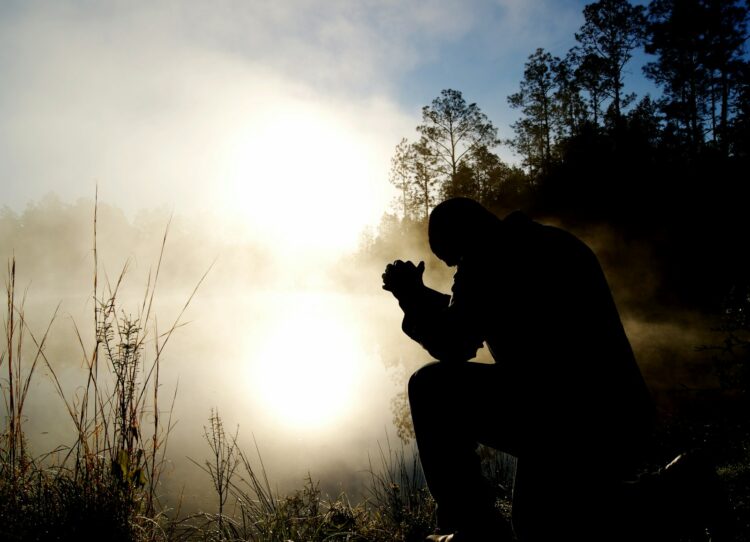
Faith can be a source of strength but even the most committed Christians can reach a point where they feel spiritually exhausted. It’s not always about losing belief — often, it’s about being stretched too thin, carrying too many responsibilities, or neglecting personal rest. Spiritual burnout creeps in quietly, and without noticing, you can go from feeling close to God to running on empty. These signs can help spot it before it deepens.
Prayer Feels Like a Chore

There was a time when prayer felt alive, like an honest talk with someone who knew you better than anyone else. Now it’s more like reciting a line you’ve said a hundred times before. You go through the motions but your mind drifts, and your heart feels far away. When life piles on, prayer can slip from being a lifeline to just another task on an already crowded list.
You Avoid Church Activities You Once Enjoyed

A packed calendar used to be exciting, but now the thought of another meeting, rehearsal or event feels heavy. You might start quietly stepping back from volunteering or skipping gatherings you once looked forward to. It’s not about losing faith — it’s about being worn down to the point where even good things feel draining instead of life-giving.
You Struggle to Read Scripture Consistently

Opening the Bible used to bring comfort or insight, but now the pages feel like a wall you can’t get past. You might read the same passage over and over without it sinking in. This isn’t laziness — it’s often a sign that your mind and heart are overloaded, making it hard to engage meaningfully with God’s Word.
Serving Feels More Like Pressure Than Joy

Helping others is central to the Christian life, but burnout flips that joy into a sense of duty. You keep saying yes to requests, even when you’re exhausted, because you don’t want to disappoint anyone. Over time, serving shifts from an act of love to something that leaves you feeling resentful, drained, and disconnected from the reason you started.
You’re Easily Irritated in Ministry Settings

Little things that never used to bother you now feel unbearable — a late arrival, a minor mistake, a long meeting. This irritability isn’t a lack of patience out of nowhere; it’s a symptom of having nothing left to give. When your emotional reserves are low, even the smallest frustrations in church or ministry work can feel magnified.
Worship Feels Emotionally Flat

You might sing along, but the words don’t stir anything inside anymore. What once moved you now feels mechanical, as if you’re going through motions without truly engaging. This isn’t about lack of sincerity — it’s about being spiritually worn down to the point where your heart can’t catch up with the actions of your body.
You’ve Lost Interest in Spiritual Growth

Bible studies, retreats, or personal devotion times used to inspire you, but now they feel distant. You might skip opportunities to learn or grow because they seem like more work than rest. This lack of desire doesn’t mean you’ve lost faith — it’s often a signal that you need to pause, breathe, and recover before you can be excited again.
You Feel Guilty for Not Doing Enough

No matter how much you serve, pray, or give, it never feels like enough. That constant pressure steals the joy from your faith and replaces it with anxiety. Instead of resting in grace, you measure yourself by how much you accomplish, leaving little room to simply be in God’s presence without an agenda.
You Avoid Conversations About Your Faith

When friends ask how you’re doing spiritually, you give short, vague answers. It’s not that you’re hiding deep sin or disbelief — it’s that you feel empty, and talking about it feels like shining a light on something you’d rather keep quiet. In safe spaces, this honesty can help, but burnout often makes people withdraw instead.
You’re Running on Habit Alone

Your routines remain intact — church on Sunday, prayer before meals, Bible verse in the morning — but it’s all muscle memory. Deep down, you know you’re functioning without the emotional or spiritual connection you once had. Burnout often masks itself as faithfulness, but it’s really a slow drift into doing the right things without feeling their weight or meaning.
You’re Emotionally Numb to Others’ Needs

Where compassion used to flow naturally, now there’s a dullness. You care in theory, but the emotional energy to act is harder to find. It’s not selfishness — it’s a sign your own well is running dry. Without rest, even the most generous heart starts to shut down in self-protection, leaving you unable to fully engage in the needs around you.
Your Private Life Feels Disconnected from Your Faith

On the outside, you may look active and committed but in private your faith life feels far away. Prayers are shorter, personal worship is rare, and you feel more focused on surviving the day than growing spiritually. That gap between what others see and what you feel inside can be one of the clearest signs of burnout creeping in.
You Dread Spiritual Commitments You Used to Embrace

Not long ago, you counted down to these moments — preparing a lesson, leading a group, showing up early to set up chairs. Now, you find yourself hoping for a reason to step back. It’s not that you’ve stopped caring about the people or the mission. It’s that you’ve been pouring out for so long, there’s barely anything left in you to give with genuine energy or joy.
You Rarely Feel Rested, Even After Time Off

You take a weekend away from ministry responsibilities, but the heaviness doesn’t lift. Burnout is different from simple tiredness — it lingers, even when you try to rest. Until the deeper spiritual and emotional needs are addressed, physical breaks alone can’t bring back the energy or joy you’re missing in your walk with God.
You’re Starting to Wonder If You Even Make a Difference

It’s a thought you keep to yourself, but it’s there — does any of this really matter? You show up, do the work and watch others nod politely but the weight of fatigue makes it hard to believe you’re having an impact. Even kind words of thanks don’t fully sink in. When you’re running on empty, discouragement can whisper louder than any reminder of why you began.

